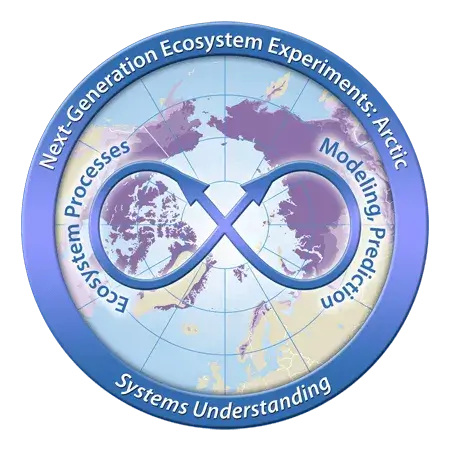Over a decade, the NGEE Arctic team has intentionally and continually developed a culture of teamwork as a foundation for excellent science. Project Leadership reflects a range of backgrounds and scientific expertise. Together with Leadership, the NGEE Arctic team has developed extensive physical safety documentation and training, with an increasing emphasis on shared expectations. We share our lessons learned with the broader community in papers (Iversen et al., 2020), society and community workshops (American Geophysical Union - Biogeosciences, United States Permafrost Association, Interagency Research Policy Committee), and annual meetings.
NGEE Arctic will continue to emphasize team science across several themes, including: (1) Team Safety; (2) Communication and Engagement; and (3) Leadership Development.
Team Safety
Project safety documents are annually read and reaffirmed by our team and include expectations for physical safety from extreme environmental conditions, as well as leadership and safety planning and expected conduct in Alaskan communities in which we are guests. We encourage collaboration across the project through our data-sharing policy and project data portal. We facilitate cross-disciplinary collaboration by bringing modelers on week-long field campaigns to Alaska, and modelers returned the favor in Mod-Ex workshops that allowed empiricists to better understand the virtual world of Earth System Models. The NGEE Arctic team continues to innovate project-wide opportunities to redefine safety. For example, ‘Tabletop Exercises’, a project-wide safety survey, and Bystander Training improve team preparedness, accountability, and awareness of the need for intervention in scenarios that threaten team member safety. We reward safety, logistical planning, and collaboration at our annual all hands meetings.
Communication and Engagement with Local and Native Communities
We engage with local and Native Communities via interactions with classrooms and class field trips, Strait Science presentations in person and over the radio, and the Alaska Voices podcast. We also participate in a local science festival in Utqiaġvik, AK (the BARC Science and Culture Fair). We develop working relationships with five Native Corporations in Utqiaġvik and Nome, AK, to request permission to access their lands and ask for their guidance on how to conduct ourselves and our science. We provide regular progress updates for the Native Corporation Boards and annual reports that summarize our scientific findings. During the COVID-19 pandemic and onward, we subcontracted members of the local community to assist with equipment maintenance, shipment, and storage.
Developing Leaders
We emphasize the recruitment and retention of excellent scientists by working with NGEE Arctic project leadership to determine scientific needs, and within partner institutions and our scientific networks to recruit scientists from a range of lived experiences and backgrounds. Within the project, we focus on intentional leadership development, including opportunities to highlight the science of our Rising Leaders at annual all hands meetings, with our DOE BER sponsors, and in our project reviews. In turn, several former early-career team members now have leadership roles in Science and Modeling Tasks, have assumed responsibility as Institutional Leaders, and have even taken over Direction of the project. In turn, the project has inspired team members to develop a culture of team science at their home institutions, within other projects, and throughout the scientific community.

